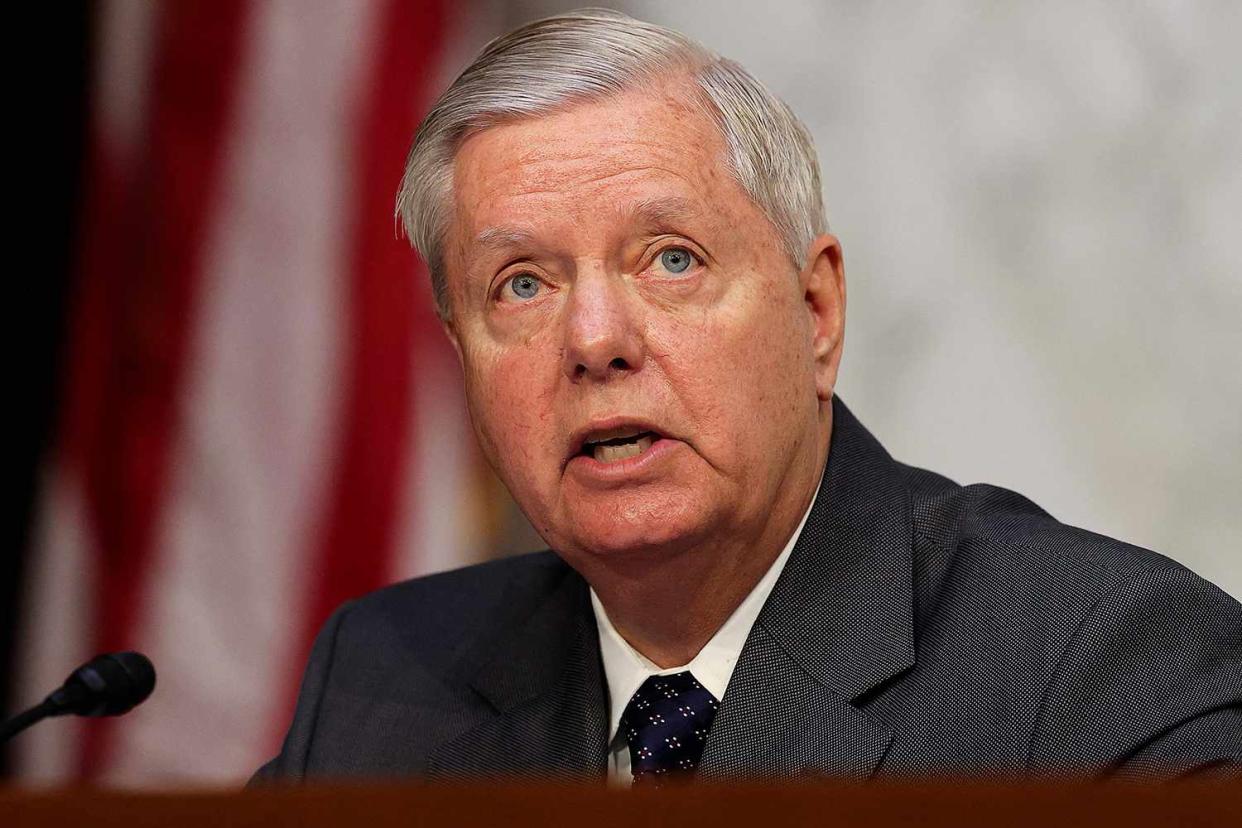Lindsey Graham Claims 'a Lot of People' In His Family Won't Work Because COVID Unemployment Pays More

- Oops!Something went wrong.Please try again later.
- Oops!Something went wrong.Please try again later.
EVELYN HOCKSTEIN/POOL/AFP via Getty Sen. Lindsey Graham
Sen. Lindsey Graham this week put a personal spin on the Republican argument against pandemic unemployment benefits - claiming that members of his family were actually refusing to go back to work because the payments were better than their workplace wages.
Graham, 65, brought up his unnamed relatives during a Senate Budget Committee hearing to acting Director of the Office of Management and Budget Shalanda Young.
Young had said she understood Graham's "logic" that some people may make more money through unemployment benefits than through an employer, but she said she has "not met Americans who would prefer not to work."
Graham said he has family who fit that description, though he didn't provide further details.
"I got a lot of people in my family that ain't working because they're getting - I'll show you some of my family," he said.
(A spokesperson for Graham did not answer questions from PEOPLE about what he meant.)
"Bottom line is I think there are people out there - they're not bad people, but they're not going to work for $15 an hour and make $23 unemployed," Graham told Young.
"That doesn't make you a bad person," he added. "If you're working for $15 an hour, that makes you almost a chump."
Graham made the comments while he urged the Biden administration to stop extending the financial aid for Americans, which have been in place throughout the COVID-19 pandemic.
The Department of Labor released a report Tuesday showing that job openings are at a record high, with 9.3 million job openings across the country as of the end of April.
The report said about 1 million jobs opened up in April, with the largest need for workers in the accommodation and food service industries.
RELATED: 22-Year-Old Impersonator Charged with Tricking Donald Trump Supporters Into Giving Him Thousands

Kevin Dietsch/Getty Sen. Lindsey Graham
Federal unemployment benefits of an extra $300 per week were extended through September under the American Rescue Plan that President Joe Biden signed in March. People seeking unemployment can also receive state benefits, many of which have been enhanced as well.
Kevin Bishop, a spokesman for Graham, said the issue the senator brought up Tuesday - that he believes some people are choosing to not go back to work because they're receiving more money through unemployment benefits - "has been a constant source of concern for employers in South Carolina."
It has in almost every other Republican-led state, as well.
So far, 25 out of 27 states with GOP governors have announced plans to withdraw from the federal Pandemic Unemployment Assistance program before the September expiration date, according to CNBC.
Some states - including Alaska, Iowa, Mississippi and Missouri - will begin cutting off federal benefits this weekend, while the others will bow out by July 10.
Yahoo! Money reported that South Carolina, which Graham has represented in Congress since 1995, will cut off access to the federal benefits program on June 30.
RELATED: Joe Biden Calls Formerly Close Friend Sen. Lindsey Graham a 'Personal Disappointment'
Earlier this month, Biden, 78, signaled there won't be another extension for federal pandemic benefits, saying "it makes sense" that the program will expire in September.
On Friday, White House Press Secretary Jen Psaki said Republican governors "have every right" to end the program in their states before September.
However, Psaki said the White House disagrees that unemployment benefits are the reason for the shortage in workers.
"We think the biggest factors overall are more people getting vaccinated, more people being comfortable and feeling safe going out into the workforce, and that's where we feel there's going to be an encouraging upward trend," Psaki said.
Economists have noted several factors that could be discouraging people from returning to work - many of which have been fueled by COVID-19 - including health risks and complications associated with the virus, early retirements, career changes, furloughs and child-care duties, according to CNBC.
"These factors interact with unemployment insurance, which can allow workers to take longer to rethink their careers, try to find jobs in new industries and negotiate for higher wages - but can also slow employment growth and prolong long-term unemployment," Harvard University economists Jason Furman and Wilson Powell III wrote in a recent article for the Peterson Institute for International Economics.
* With MORGAN SMITH

